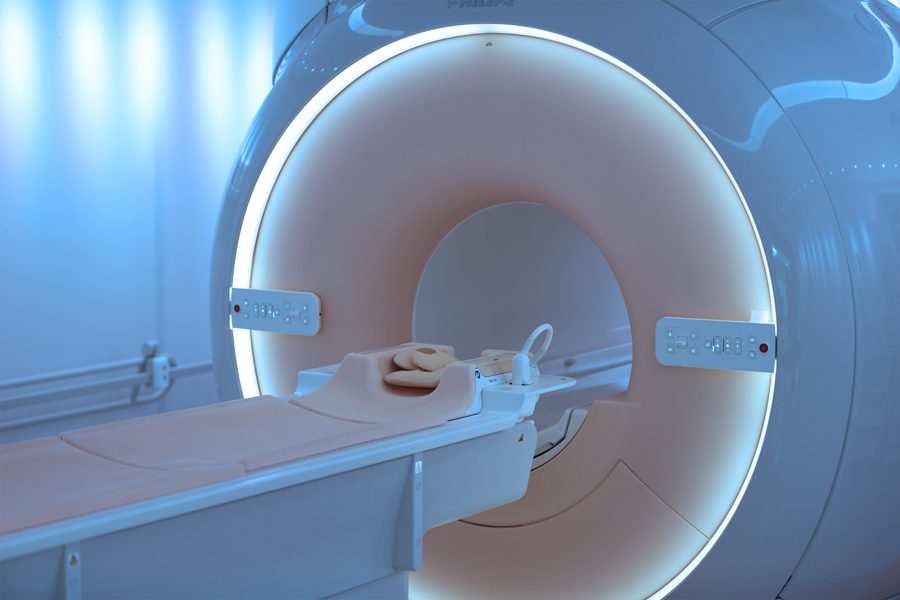
What is a Multiparametric Prostate MRI?
It is a NON INVASIVE technique for prostate exploration.
The Multiparametric Prostate Magnetic Resonance Imaging (MRI) does not use radiation, it assesses water molecule motion (called water diffusion) and blood flow (called perfusion imaging) within the prostate. This helps your doctor tell the difference between diseased and normal prostate tissue.
The Multiparametric Prostate MRI has a diagnostic sensitivity of approximately 85% in different types of prostate cancer, especially those that are significantly aggressive. In addition, it has high resolution images for small lesions or tumors.
In relation to prostate cancer, the Multiparametric Prostate MRI has acquired in recent years an important role, both in the diagnosis in case of elevated PSA (prostate specific antigen in blood) with negative biopsies, as well as in local and distant staging, and even in the monitoring of treatment.
What equipment is used for the Multiparametric Prostate MRI at Scantibodies Imaging and Therapy?

Our equipment:
At Scantibodies we use the Philips 1.5T Ingenia, a high resolution MRI system.
Amenities:
More information about our Digital MRI services:
Prostate Cancer risk factors.
Prostate cancer is a tumor of the prostate gland, which is located in front of the rectum, below the bladder and above the base of the penis. Your doctor may perform a physical exam, prostate-specific antigen (PSA) blood test or digital rectal exam to help diagnose your condition. If cancer is detected, your doctor may use prostate ultrasound or prostate MRI to help determine its extent and where to perform a biopsy. An ultrasound- or MRI-guided needle biopsy may be performed to confirm the diagnosis. Treatment options include surgery, radiation therapy, systemic therapy, and active surveillance.
Risk factors of prostate cancer include:
- Age
- Race, especially men of African American descent
- Obesity
- Family history of prostate cancer
- Diet high in fats from red meat
- History of sexually transmitted disease (STD)*
* For more information visit: radiologyinfo.org
Prostate cancer symptoms.
Prostate cancer is the most common form of cancer in American men. It is most prevalent in men over age 65 and common in men 50-64 years old. However, prostate cancer can occur in men younger than 50. Prostate-specific antigen (PSA) screening has dramatically improved the diagnosis of prostate cancer. As a result, men below the age of 65 years show an increased incidence of this disease.
Prostate cancer shows few symptoms until its advanced stages. These symptoms include:
- Blood in urine or semen
- Lower back, pelvic or hip pain
- Urination issues
- Erectile dysfunction
In some cases of early prostate cancer, there are no symptoms. Routine screening with PSA blood test and/or digital rectal examination often discovers prostate cancer. **
** For more information, visit: radiologyinfo.org
When is Multiparametric Prostate MRI a useful study?
Based on medical literature, the following are some applications for this scan:
Occasionally, a Multiparametric Prostate MRI is used to evaluate other problems, including:
- Infection (prostatitis) or prostate abscess.
- An enlarged prostate, called benign prostatic hyperplasia (BPH).
- Abnormal conditions present at birth.
- Complications after pelvic surgery. ***





